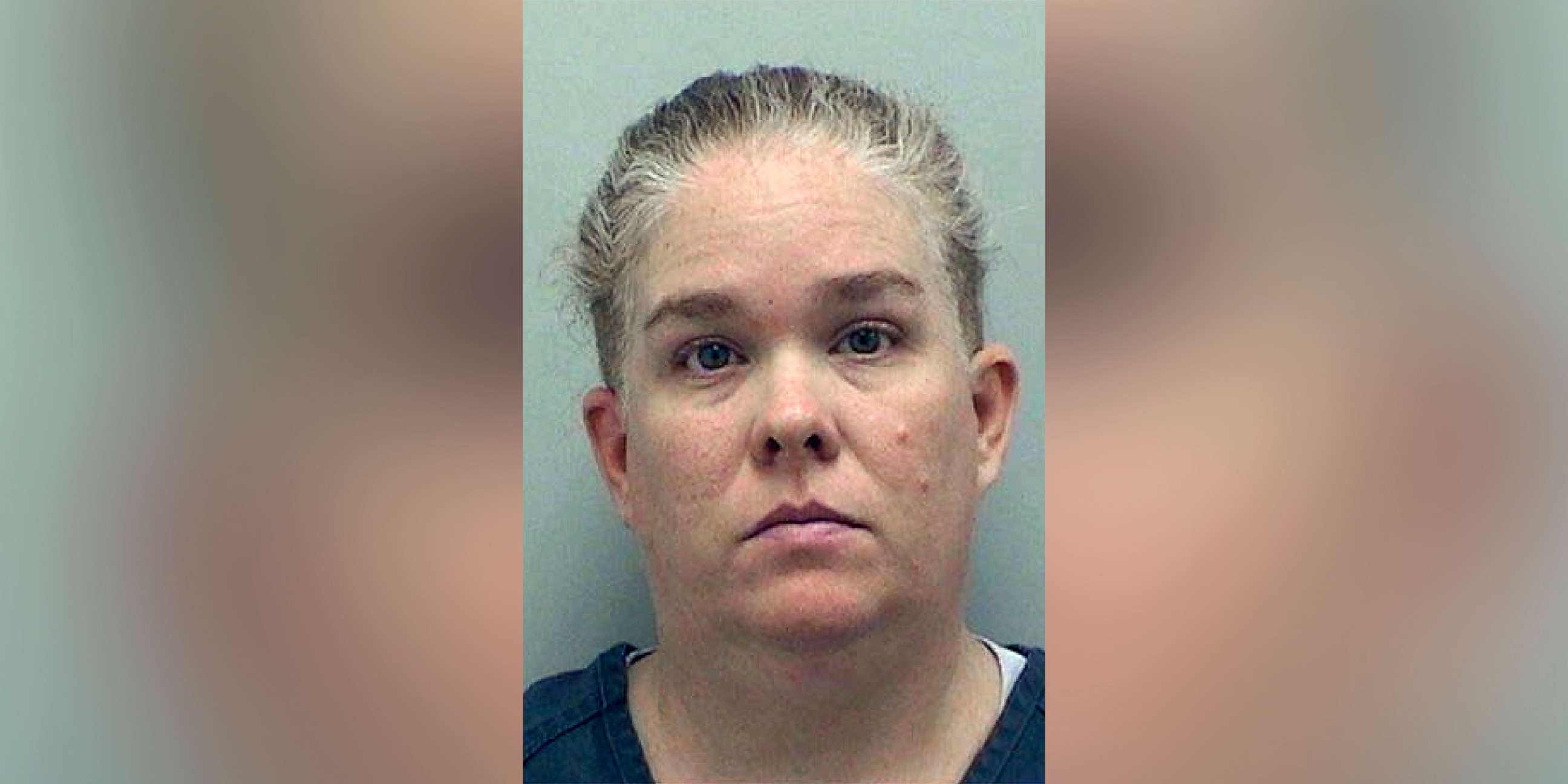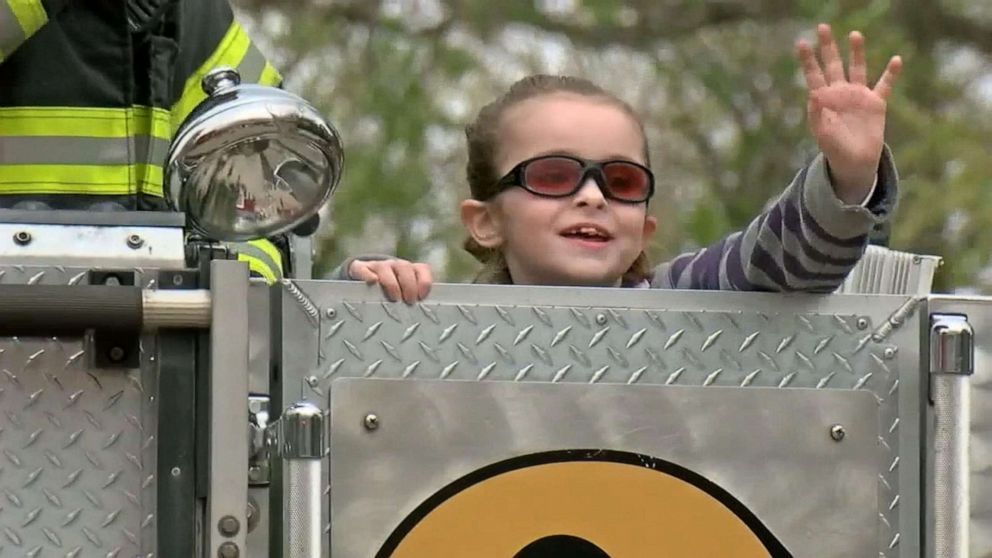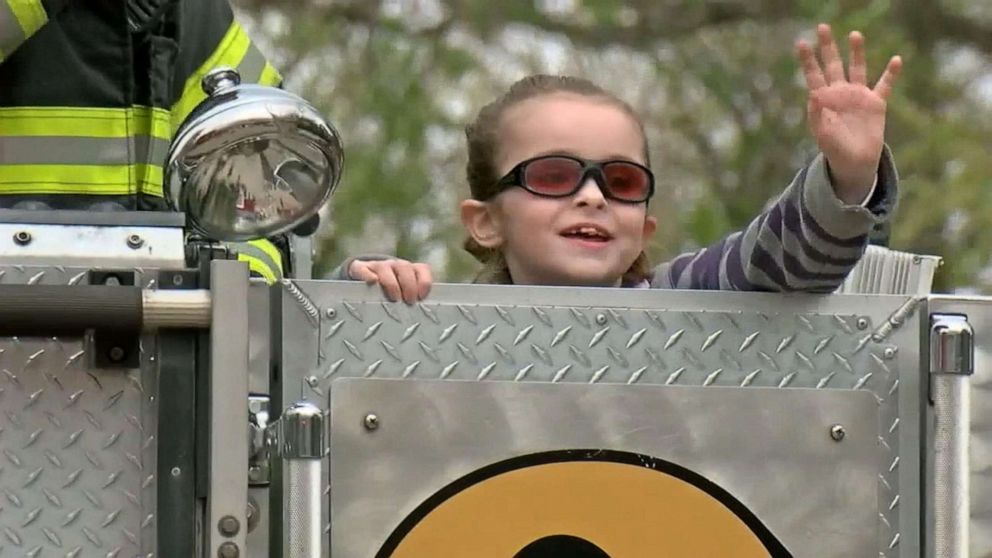Colorado mom accused of murdering 7-year-old daughter whom she claimed was terminally ill
A Colorado woman who claimed her 7-year-old daughter died of a terminal illness two years ago has now been accused of her murder.
Kelly Renee Turner, who also goes by Kelly Renee Gant, was arrested at a hotel in Glendale, Colorado, on Friday after a grand jury returned a 13-count indictment against her for the 2017 death of her daughter, Olivia Gant. Turner is facing multiple felony and misdemeanor charges, including first-degree murder, child abuse and charitable fraud, according to court documents obtained by ABC News.
Turner, 41, was booked into the Douglas County Detention Facility in Castle Rock, Colorado. She made her first court appearance Monday and is being held without bond pending her next one, which is scheduled for Nov. 1. Turner's public defender declined to comment on the case.
The grand jury indictment was the culmination of a yearlong investigation by the Douglas County Sheriff’s Office in Colorado, which began after Olivia's primary care doctor became suspicious about Turner's claims that her other daughter had been treated for childhood cancer when they lived in Texas. The doctor soon confirmed with Texas hospitals that the child was never diagnosed with nor treated for cancer of any type, which then prompted concerns about Olivia's death and care as well, according to the indictment.
"I am extremely proud and impressed with the determination of all agencies involved, especially my detectives," Douglas County Sheriff Tony Spurlock said in a statement on Monday. "While it has been an extremely emotional case, they have investigated all aspects of it with diligence and professionalism."

The investigation was initiated by doctors at Children's Hospital Colorado along with the Jefferson County Department of Human Services. A redacted Human Services report, which was cited in the indictment, expressed concern that Turner "has lied about the children's medical conditions and therefore may have caused harm to the children and or caused them to have significant medical procedures." The report said there was also concern that Turner "may have been benefiting from this attention" and "has a financial and social motivation for her children's medical conditions, both real and fictitious."
A spokesperson for Children's Hospital Colorado declined to comment on the case Tuesday, saying, "At this point we do not want to compromise any active legal matters."
After moving from Texas to Colorado, Turner first took Olivia to Children's Hospital in 2013 with concerns of developmental delays. The little girl, who was just 2 years old at the time, was ultimately diagnosed with autism, according to the indictment.
Olivia then began seeing doctors for constipation, which eventually got worse. When Olivia started getting sick, Turner reported that her daughter was having severe pain related to eating. Olivia was ultimately put on a feeding tube and then an intravenous line known as Total Parenteral Nutrition (TPN), according to the indictment.
Turner was told that her daughter would not be able to sustain feeding on IV nutrition and was given the option to take Olivia home on hospice. The little girl died at Denver Hospice a few weeks later, according to the indictment.
Turner had set up a GoFundMe account to help with some of Olivia's medical expenses that she claimed weren't covered by their family's health insurance nor Medicaid. The crowdfunding campaign raised $22,270 from 161 donors in two years, according to the indictment.
Before she died in August 2017, Olivia was featured on local and national news as she checked off items on her bucket list, which included helping Denver police officers bust "bad guys." Turner had told media outlets covering Olivia's story that her daughter was terminally ill with neurogastrointestinal encephalomyopathy, a rare disease that the mother claimed had caused her young daughter to suffer intestinal failure.

But multiple doctors who had treated Olivia over the years told detectives that the little girl was not terminally ill, according to court documents.
A general pediatric surgeon, who performed Olivia's feeding tube, ileostomy and central line surgeries, described Turner as a "high maintenance mother" who "wasn't afraid of surgery," according to the indictment.
A pediatric neurologist who treated Olivia for reports of seizures said the little girl didn't have them and told Turner on three separate occasions over two years to stop giving her anti-epileptic drugs, according to the indictment.
A pediatric gastrointestinal doctor and clinician said all of Olivia's medical history and symptoms came from Turner, and that the little girl did not exhibit the symptoms her mother described most of the time. The doctor said he was against "letting Turner take Olivia to hospice care to die," according to the indictment.
Another gastroenterologist, who said he managed Olivia's TPN when she received it, said he and other medical staff members had discussions with Turner about reducing her daughter's dependency on the intravenous line but the mother refused, stating, "We've already tried that," according to the indictment.
A pediatric anesthesiologist said he treated Olivia for the symptoms that Turner reported were causing her daughter "a lot of pain." He said Turner insisted that her daughter's IV nutrition and medical care be withdrawn because she had a life-limiting disease and her quality of life was poor. The clinic's ethics team pushed back but ultimately decided to let Turner withdraw the TPN line, according to the indictment.

Olivia's remains were exhumed in November 2018 and a complete autopsy was performed by Dr. Kelly Lear, a pathologist who is also Colorado's Arapahoe County Coroner. Lear noted a lack of any anatomical findings that would account for Olivia's stated cause of death, intestinal failure, as well as many of the conditions Turner claimed she suffered from, according to the indictment.
"Based on the lack of anatomic findings to account for her chronic intestinal failure, nonspecific toxicology results, and the inability to exclude caregiver-fabricated illness, the manner of death is best certified as undetermined," Lear stated in a 14-page report, as cited in the indictment.
Last year, a detective spoke with Turner who allegedly admitted to fabricating her other daughter's cancer diagnosis but maintained that Olivia's medical conditions were completely legitimate. Turner allegedly told the detective that doctors had agreed Olivia was only receiving 30% of her daily nutritional requirement via the TPN line and that they signed off on the hospice admission paperwork, according to the indictment.
Turner, unsolicited, also allegedly brought up Munchausen by proxy syndrome, telling the detective, "That has never been my case, like at all, whatsoever. You can talk to anyone that stood by my side," according to the indictment. Munchausen by proxy syndrome is a relatively rare psychological disorder in which a caregiver exaggerates or makes up symptoms of the individual in their care.
A caseworker with the Douglas County Department of Human Services conducted a separation test last October to see whether Turner's other daughter would have medical issues when her mother wasn't present. The girl has not had any additional health problems or complaints of pain since then, according to the indictment.
Turner has not yet entered a plea in the case.




